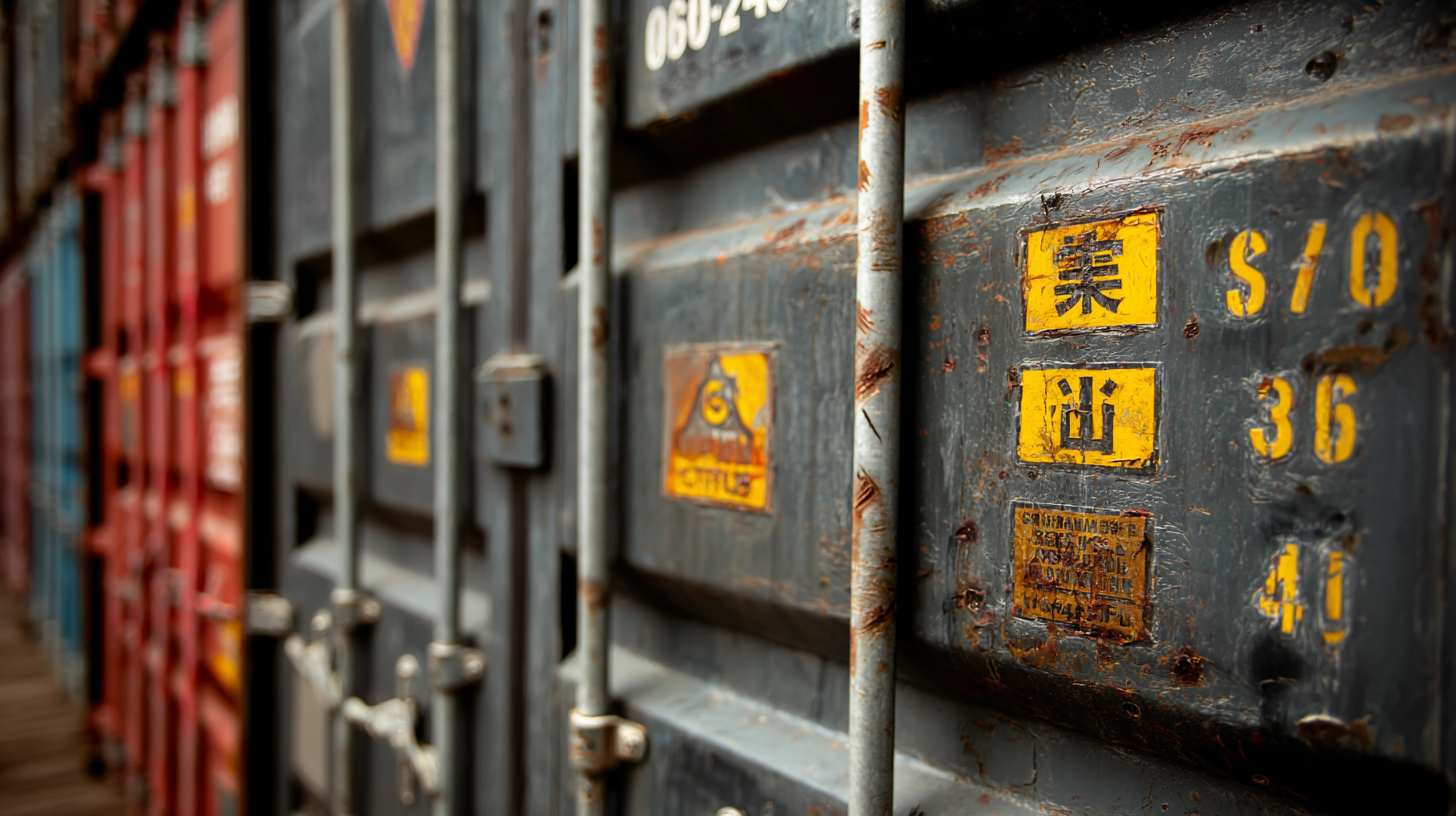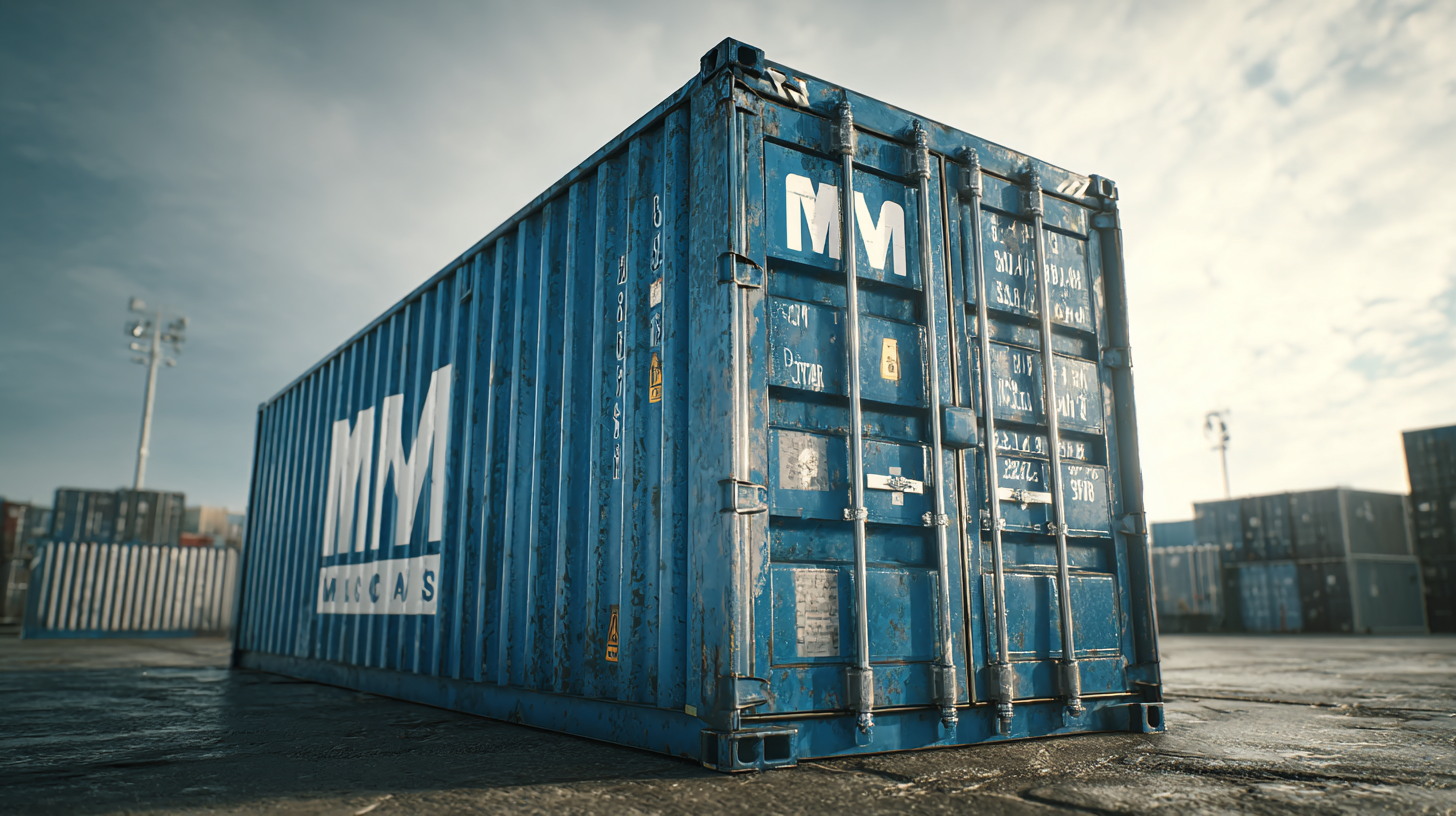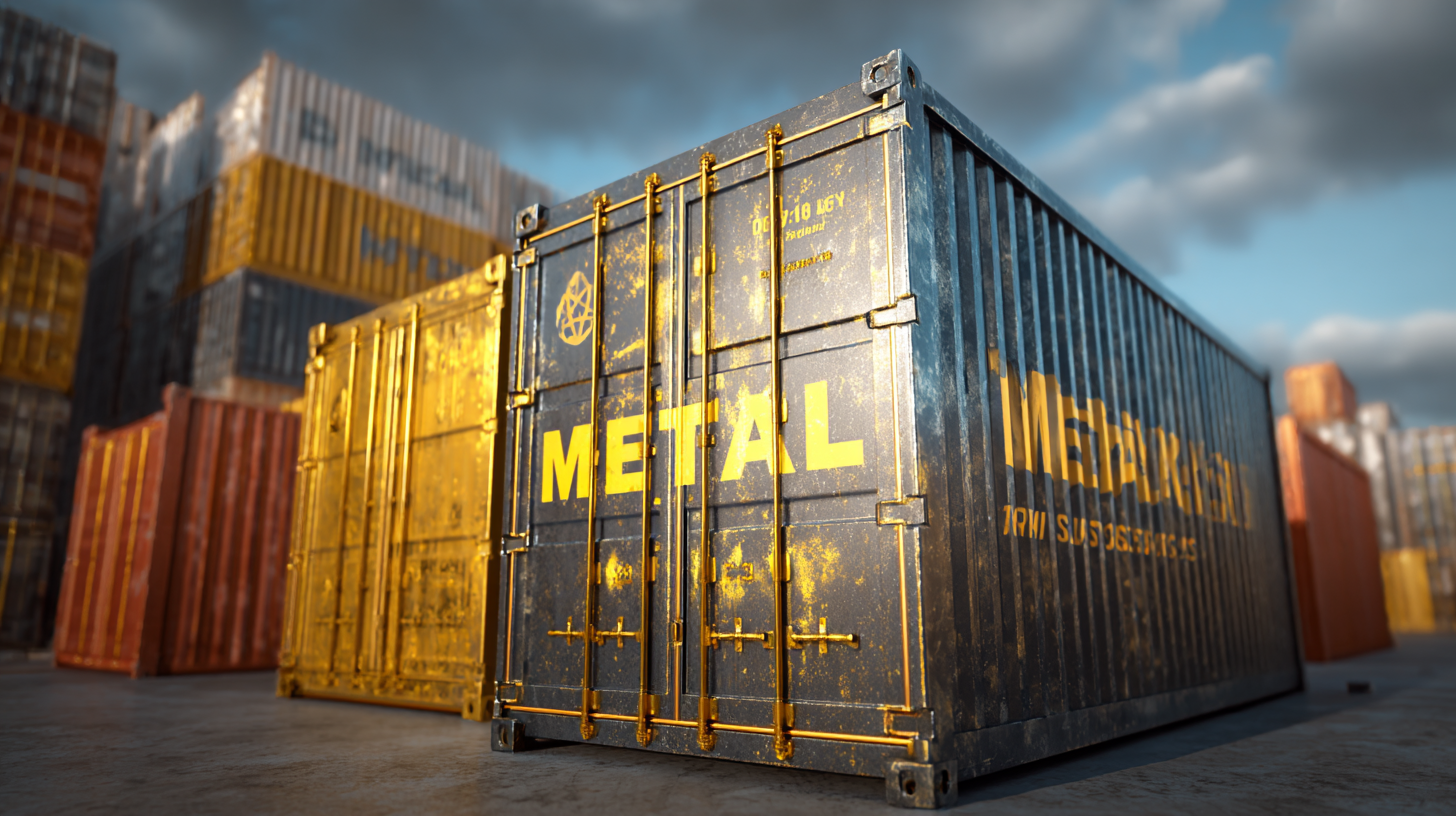 +8618680445103
+8618680445103
Free Standard Samples can be provided for you to check the quality.
Leave Your Message
In today's competitive market, optimizing supply chains and harnessing the full potential of quality suppliers is crucial for achieving the best Container Metal solutions. As per the Global Metal Containers Market Report, the industry is expected to reach a value of USD 220 billion by 2025, growing at a CAGR of 4.5%. This growth is driven by the increasing demand for sustainable packaging solutions and durable materials that meet stringent international standards. Chinese manufacturers have emerged as key players, consistently demonstrating their capabilities to produce high-quality container metals that fulfill global requirements. With advanced production technologies and a commitment to quality, these top-tier factories are poised to build trust and reliability, reinforcing their partnerships worldwide. The evolution of supply chain dynamics calls for a comprehensive understanding of supplier capabilities and strategic collaboration, making it essential to unlock the latent potential within this vital sector.

When it comes to sourcing container metal solutions, identifying key qualities in potential suppliers is crucial for ensuring product excellence and reliability. A successful partnership begins with suppliers who demonstrate a strong commitment to quality control. This includes having ISO certifications and adhering to international standards that guarantee their products meet stringent quality requirements. Moreover, a dedication to continuous improvement and innovation is essential, as it indicates a supplier's ability to adapt to market trends and evolving customer needs.

Another vital characteristic is the supplier's experience and expertise in the container metal industry. A seasoned supplier with a proven track record is more likely to understand the complexities of metal solutions and offer valuable insights during the sourcing process. Reliability in delivery timelines and performance consistency is also key, as delays can disrupt operations and lead to financial losses. Therefore, assessing a supplier's capacity to fulfill orders on time while maintaining quality is paramount. By focusing on these fundamental qualities, businesses can unlock the full potential of their supplier relationships, ultimately leading to the best container metal solutions available in the market.
When it comes to sourcing the best container metal solutions, evaluating supplier capabilities and expertise is crucial. An effective evaluation starts with understanding the supplier's technical competencies. This includes examining their manufacturing processes, quality control measures, and any certifications they may hold. By assessing these areas, businesses can gauge whether a supplier can deliver products that meet the desired specifications and standards. Establishing a clear set of criteria for evaluation helps streamline this process, enabling companies to focus on suppliers that demonstrate true value and reliability.
Another key strategy is to engage in open communication with potential suppliers. This not only fosters a better understanding of their operations but also reveals their commitment to customer satisfaction and collaborative problem-solving. Asking specific questions about past projects, timelines, and customer feedback can provide deeper insights into a supplier's track record. Additionally, visiting the supplier's manufacturing site can offer a firsthand look at their capabilities and working environment. By taking these steps, companies can ensure they are partnering with suppliers who possess both the expertise and the drive necessary to deliver high-quality container metal solutions.
Building strong relationships with suppliers is crucial in the quest for optimal metal solutions in the container industry. These partnerships go beyond mere transactions; they involve trust, open communication, and a shared vision for quality and innovation. When suppliers understand the specific needs of a business, they can tailor their offerings to deliver customized metal solutions that enhance product performance and reliability. This collaborative approach not only streamlines production processes but also fosters a culture of continuous improvement and problem-solving.
In an industry where timing and precision are vital, having reliable suppliers strengthens the foundation of any successful operation. By investing time and resources into nurturing these relationships, companies can benefit from supplier insights and expertise, leading to enhanced product development and reduced costs. Moreover, strong supplier relationships can facilitate quicker response times to fluctuations in demand, helping businesses remain agile and competitive. Embracing this strategy not only unlocks the potential of suppliers but also propels companies toward achieving their long-term goals in the dynamic landscape of container metal solutions.
 In the pursuit of high-quality container metal solutions, fostering innovative supplier collaboration and development is essential. Engaging with suppliers not only enhances product quality but also cultivates a transformative partnership that drives mutual growth. By investing time in understanding your suppliers' capabilities, you can unlock their potential and achieve superior results in your manufacturing processes.
In the pursuit of high-quality container metal solutions, fostering innovative supplier collaboration and development is essential. Engaging with suppliers not only enhances product quality but also cultivates a transformative partnership that drives mutual growth. By investing time in understanding your suppliers' capabilities, you can unlock their potential and achieve superior results in your manufacturing processes.
Tip 1: Regularly organize workshops or training sessions with your suppliers. This not only helps in sharing best practices but also encourages them to adopt innovative technologies that can improve efficiency and quality.
Creating an open line of communication is another fundamental aspect of successful supplier partnerships. When suppliers feel valued and heard, they are more likely to innovate and provide feedback that can lead to better outcomes. Establishing a collaborative environment can bring forth new ideas that benefit both parties.
Tip 2: Implement a feedback loop where suppliers can share their insights on your processes. This will help identify areas for improvement, fostering a culture of continuous enhancement that can lead to groundbreaking solutions in container metal products.
In the quest for premium container metal solutions, measuring supplier performance through Key Performance Indicators (KPIs) is paramount. According to a report by the Institute for Supply Management, nearly 80% of organizations that implement KPI systems report improved communication and increased transparency with their suppliers. Effective KPIs such as delivery reliability, quality assurance, and cost management are essential metrics that organizations can use to evaluate their suppliers, ensuring they align with strategic business goals.
Research by Deloitte indicates that companies leveraging data-driven supplier performance measurement see an average improvement of 20% in operational efficiency. Metrics like on-time delivery rates and defect rates not only help in identifying underperforming suppliers but also facilitate the development of corrective actions, thereby enhancing the overall supply chain resilience. As organizations continuously refine their KPI frameworks, they gain insights that lead to stronger collaborative relationships with suppliers, ultimately unlocking their potential for delivering best-in-class container metal solutions.
| Supplier Name | On-Time Delivery (%) | Quality Rating (1-5) | Response Time (Hours) | Cost Competitiveness (Score 1-10) | Years in Business | Sustainability Score (1-10) |
|---|---|---|---|---|---|---|
| Supplier A | 95 | 4.8 | 24 | 9 | 15 | 8 |
| Supplier B | 90 | 4.3 | 30 | 7 | 20 | 9 |
| Supplier C | 85 | 4.0 | 20 | 6 | 10 | 7 |
| Supplier D | 92 | 4.5 | 25 | 8 | 12 | 6 |
| Supplier E | 88 | 4.7 | 22 | 9 | 18 | 8 |
